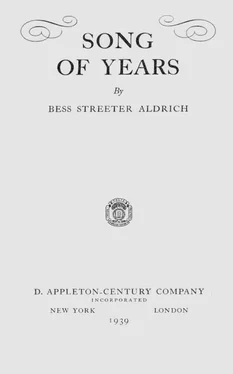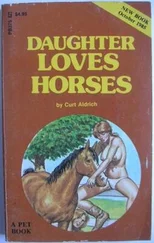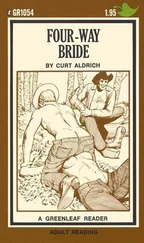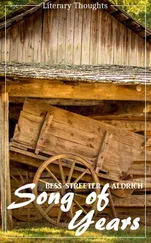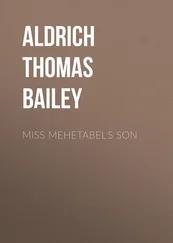And now he was almost home. Home! That was a queer word to apply to the prairie grass and the creek and the clump of timber lying off there to the north. But in no time at all he would have a good snug cabin. He would break out the sod, raise fine crops, stock his farm, bring in sheep, buy more land. Ten years from now he would have a transplanted New England home, but larger and finer. It was a pleasant picture. He broke into singing, true and resonant:
“Oh, ye’ll tak’ the high road an’ I’ll tak’ the low road.
An I’ll be in Scotland before ye;
But I and my true love will never meet again—”
He broke off suddenly. There were the four cabins plainly visible now, scattered over the prairie, and a high spiral of smoke in a grove to the left gave mute evidence that another one nestled there in its shelter. Five cabins! There lived his neighbors. Who might they be and from whence had they come?
It gave him a queer sensation of excitement and curiosity not to know the answers, for his life in the next few years, no doubt, would be more or less intertwined with those of the unknown persons in the five prairie shelters.
On his own land at last he made camp in the little grove at the creek’s bend, grinning to himself at the welcome sight of his socks on a bush. His horses, having snatched greedily at the lush grass when first unharnessed, had settled down to a contented browsing as though discovering there was ample food to last forever.
The afternoon was spent in assembling wood for fires, choosing the site for his cabin, setting stakes to show its dimensions, clearing the brush, marking the trees to be cut. These were to-day’s small tasks. Not until the first tree was felled on the morrow would he feel that he was accomplishing anything.
He worked until dark, made a fire, and cooked corn-meal mush and slices of smoked meat which he ate with the hearty relish of a healthy young animal. Then he put green branches across the fire and went to see that the horses were comfortable, patting them, rubbing their noses, speaking to them as one would to humans, “Good night, Belle! Good night, Blackbird.” They responded with friendly little sounds and a nuzzling of their long lips.
All day at his work he had been busy and contented. Now he felt lonely here in the great expanse of prairie under the wide sky. Now he knew a mental and emotional let-down, experienced the flat feeling of an anticlimax after some great adventure. This was dull reality. To-night, home seemed very far away. All those days in which he had been traveling westward, hurrying to make true the dream of land that would be his own, home had been something from which he was released, something shaken off with boyish abandon so that he might be free to use the money given him by his seafaring grandfather as he wished. Now that the feverish activity of getting the claim was over, the decision made, a large share of his money spent, his severance from “the folks” complete, he was in a bit of a mental slump. Physical fear he had never known. But to-night the vastness of the prairie, the stillness of it, the lack of friendly voice, of human companion, was almost overwhelming. It was scarcely understandable when he had been alone and uncomplaining on the prairie during so many nights before.
He climbed into the wagon-box, pulled a blanket and the buffalo robe over him, for the night had taken on the chill dampness of falling dew. The silence of the prairie was almost as loud as ever noise could be. Then, suddenly, a wolf howled from some point along the creek bed. Another answered faintly from a distance. An owl hooted in the timber. Some little night creature started a tick-tacking in the grove near-by. All the silence of the prairie became pregnant with the sound of living things—things that crept and moved, hooted and howled, tapped and tiptoed, swayed the grass and stole forth from tree trunks.
More than he had ever wanted human companionship, he wished for it now. That girl—that schoolmate of his sister’s who had cried over him—probably she would have come out here with him if he . . . Lord, no, he hadn’t even liked her.
His mother had said: “Wayne, when the time comes for you to marry, come back here for a wife.”
He had laughed at that, telling her there was no one he would want, keeping it to himself that he could half-way visualize a girl—oh, maybe not her features, but she was there all right, dainty and demure, in a kind of a haze that framed her face like a white cloud.
He slipped his hands under his head and looked up at the long streaming white veils of film slipping between him and a million stars—long white veils—that framed a face—
And slept.
Thus did Wayne Lockwood, in the year 1854, in the young raw state of Iowa, sleep the first long night away under the prairie sky. And thus did the curtain go up on the little play which was to contain all the elements of every life’s drama: work, play, joy, sorrow, disappointment, achievement, love, hate.
The beginning of this day took upon itself the beginning of his real pioneering—so Wayne Lockwood thought as he struck ax into the first stalwart hickory.
If only rain would hold off until he had his house completed! But that was too much to hope for, as a single pair of hands would make protracted work of putting up a cabin. Oh, well, he had his wagon-box and its heavy canvas. He had been too many days and nights on the prairie to worry about that.
It was far into the forenoon, with the first tree lying prostrate and denuded of part of its branches, when from the southeast he saw two horses galloping toward him. As they approached he made out that one was ridden by a man, but that skirts were billowing out, balloon-like, at the side of the other.
When they rode close and reined in, the man proved to be middle-aged, black-whiskered, shaggy-browed and dark-skinned, with that tinge of complexion which Wayne was to find later came from the taking of much quinine. He sat his horse with ease, the trunk of his body as erect as the tree Wayne had just marked for the next cutting, but his head drooped forward as though he must be forever urging his mount on.
As the new-comer swung his long legs off, he stood level-eyed across from Wayne so that he, too, must have been fully six feet one.
The billowing skirt (collapsed now into a long gray calico one) belonged to a young girl who might have been any age from twelve to sixteen; it was difficult to tell it, clothed as she was in the full-skirted, tight-waisted garment of the prairie female person.
She had been wearing a gray sunbonnet as stiff as a reed-basket, but it now straddled her neck where it rattled starchily in the brisk wind. Her hair was reddish-brown, vaguely wavy, he could see, for it had partially tumbled out from a black net in the swift riding over the prairie. Her gray-blue eyes looked too large for the slim oval of her face and too mature for a certain childishness.
“Well . . . what’s goin’ on here?” was the man’s bluff and hearty greeting as soon as he had dismounted.
Wayne met him pleasantly enough with: “Oh, I’m sort of setting up housekeeping.” He could see now that under the bushy, black eyebrows peered blue eyes so sharp and bright that they looked like bits of sparkling ice in dark timberland pools.
“Taken over some land?”
“Yes, sir . . .” Wayne threw out his hand at the surrounding scene. “My front yard.”
“Well, now, that’s just about the best news I’ve heard for a spell.”
“I take it you’re one of my neighbors.”
“You took it right. Jeremiah Martin’s my name. I’m an old-time settler now, come two years ago this month. Live over there at the edge of that grove on the trail. You can’t rightly see the house from here but she’s there all right with eleven folks in her when they’re all to home.”
Читать дальше
